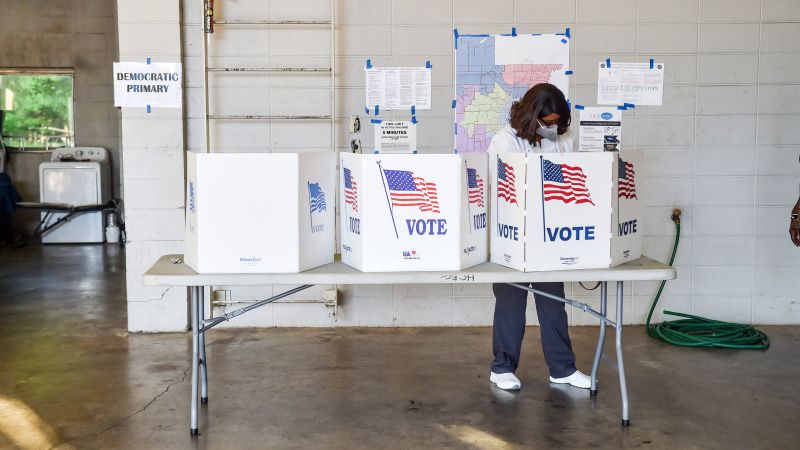The Supreme Court declined Friday to take up a challenge to a Mississippi statute that bars individuals convicted of certain felonies from voting. Critics say the law is unconstitutional because it was enacted in 1890 with the intent to disenfranchise Black voters.
Justices Ketanji Brown Jackson and Sonia Sotomayor dissented from the court’s decision to turn away the case.
The challengers in the case, Roy Harness and Kamal Karriem, are Black men in the state who have been convicted of forgery and embezzlement, respectively, and have served their time. They are currently barred from voting under state law – Section 241– because of their convictions. They argued that the law is tainted with racial animus.
“Today, in 2022, many thousands of Mississippi’s African American citizens are disfranchised by a provision that was enacted in 1890 to ensure ‘a home government under the control of the white people of the State,’” their lawyer, former US Solicitor General Donald B. Verrilli Jr., argued in court papers.
A federal appeals court acknowledged that it was “uncontroverted” that the 1890 Mississippi state constitutional convention was “steeped” in racism and that the “state was motivated by a desire to discriminate against blacks,” when a consitution was adopted. But it said that the law had since been amended – procedures that “cleansed the current provision of its previous discriminatory taint.”
“After careful consideration of the record and applicable precedents, we reconfirm that Section 241 in its current form does not violate the Equal Protection Clause,” the court held. Any “taint,” the court said, “has been cured.”
In their dissent, Jackson and Sotomayor argued that the court had made “clear and momentous errors.”
Mississippi Attorney General Lynn Fitch told the…
Read the full article here

Leave a Reply